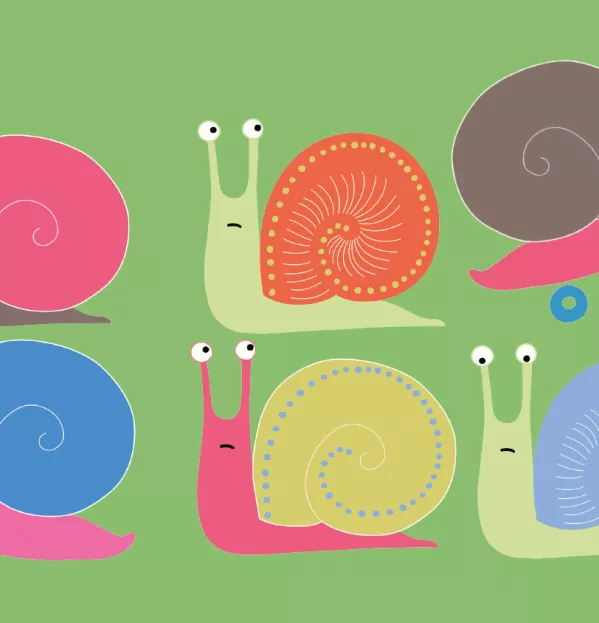A teacher’s hunt for evidence on...How to help my students become more independent

Sam would perhaps prove to be my most maddening student: “I forgot my book, Sir”; “My internet wasn’t working”; “I didn’t write my homework down”; “Erm, I forgot”. A catalogue of flimsy excuses would characterise his school year. Inevitably, with each assessment, he would fall back another step behind his peers.
By the time this student left the sixth form, would he be properly prepared to enter the world of work, with all the independence required to flourish? Not likely.
But perhaps Sam hadn’t been taught the necessary strategies to manage his own learning early enough and then consistently over time? On the fast track to GCSE success, we can too easily foster student dependence and eschew real independence.
We need to think again about how we nurture students and what we teach them; we need to explore how we can help every student to develop as an independent learner so we don’t leave pupils like Sam floundering.
So how do we do it? First, we need to better define what we mean by “independent learning”. In a 2008 literature review by the Centre for the Use of Research and Evidence in Education, researchers found the key ingredient for independent learning was the “shift in responsibility for the learning process from the teacher to the student”, which involved, “students acquiring an understanding of their learning, being motivated to learn and collaborating with teachers to structure their learning environment”.
For students such as Sam, motivation and structure are sorely lacking. Perhaps, then, his teachers - myself included - needed to better understand exactly how and when to nurture his independence?
Seeking independence
Too often, we can view independence as a starting point for learning in the classroom and not a long-term goal beyond it. Indeed, research by Clark, Kirschner and Sweller (2006) reveals that minimally guided instruction - for example, expecting someone like Sam to research competently and read widely without lots of guidance - too often leads to failure.
The evidence shows that scaffolding learning, rather than providing a straitjacket, is actually crucial to developing independence in our students, whether they are 7 or 17.
The recent Education Endowment Foundation guidance report on metacognition and self-regulation offers a solution when it refers to strategies for independent learning (via Zimmerman), involving setting specific short-term goals:
* Adopting powerful strategies for attaining those goals.
* Monitoring performance for signs of progress.
* Restructuring one’s physical and social context to make it compatible with one’s goals.
* Managing use of time efficiently.
* Self-evaluating one’s methods.
* Attributing causation to results and adapting future methods.
Of course, for students like Sam, we need to make these strategies explicit and concrete. We need to guide him, and all learners, to practise these strategies to the point where they become automatic.
With a little gentle questioning, it became clear that Sam had not internalised such strategies. I had wrongly assumed that, by age 17, they would have stuck.
To remedy the situation, it would be necessary to explicitly teach and model the aforementioned strategies. For example, “specific short-term goals” could include preparing for school, whereas “monitoring his performance” could be deploying strategies like using a calendar and checklists to plan his time and workload.
For “powerful strategies”, we need to be guided by the best evidence from cognitive science - such as quizzing, self-testing and “spacing” (where practice is broken into shorter sessions “spaced” over time).
But, of course, we do not teach in a vacuum. Independent learning is clearly a complex and difficult challenge for our students. It requires a deft control of skill and will. And it is no doubt hard for our students to delay the gratification offered by Instagram and WhatsApp in order to tackle their relatively dull homework.
So, we need to help. Even training students to switch off their phones is a small but significant start.
A problem here for teachers is that we are seldom present when independent learning happens. So it becomes more difficult to understand or assess it. There are obvious traces of independent learning in homework completion rates and quiz performances. However, it can prove hard to get underneath the specific issues faced by students such as Sam.
What we must do, then, is to realise that all our students - not just obvious strugglers like Sam - need a good deal more explicit instruction on how to better manage their independent learning.
The long-term impact of not doing this is clear. We can see from the research evidence that students at university still fail to exhibit the required independent learning that their lecturers hope for. Research by Hartwig and Dunlosky (2011), titled Study Strategies of College Students: are self-testing and scheduling related to achievement?, reveals the now unsurprising fact that university students don’t assess their own learning effectively. Nor do they manage their independent learning time well.
In addition, it shows that low-achieving students study via last-minute cramming and that they struggle to plan.
Clearly, from the early years of school to the early days of university, we need to explicitly train students to be self-regulated learners much more than we may assume.
Alex Quigley is director of the Huntington Research School in York and author of Closing the Vocabulary Gap. Read his blog at www.theconfidentteacher.com and find him on Twitter at @HuntingEnglish
You need a Tes subscription to read this article
Subscribe now to read this article and get other subscriber-only content:
- Unlimited access to all Tes magazine content
- Exclusive subscriber-only stories
- Award-winning email newsletters
Already a subscriber? Log in
You need a subscription to read this article
Subscribe now to read this article and get other subscriber-only content, including:
- Unlimited access to all Tes magazine content
- Exclusive subscriber-only stories
- Award-winning email newsletters